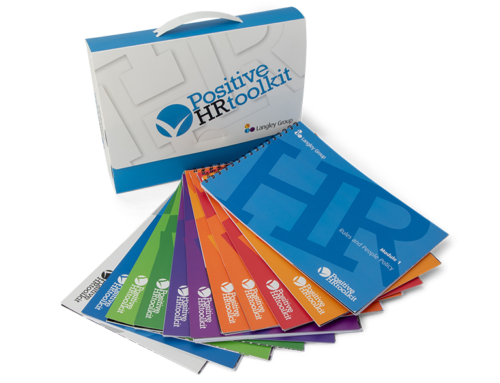As the founder of Cappfinity in the UK, Dr Alex Linley’s aim of ‘strengthening the world’ focuses on leveraging expertise to apply strengths psychology to organisational development and people practices. Alex is globally recognised as an expert in strengths.
Alex has a PhD in Psychology from the University of Warwick; he is the author of Average to A+ and the creator of the Strengths Profile, the leading strengths assessment. Alex has changed the face of recruitment and development across many organisations.
In our recent ‘In Conversation’ session with Alex, we discussed the philosophy behind various strengths profile assessments which shed light on the fundamental need for a dynamic and flexible approach to strengths spotting. Strengths are natural capacities within individuals that, when played to, allow the individual to achieve optimal functioning and performance.
Alex believes that “our strengths are neither fixed nor genetically encoded and can shift and change with the ebbs and flows of life.”
It is a paradox of human psychology that while people remember criticism, they respond to praise. The effect of affirmation and focusing on strengths in people increases confidence and brings about further strength-based behaviours. In addition, strengths are grounded in a psychological framework that can be defined and measured. At Langley Group, we take a strengths-based approach as it is scientifically proven to benefit organisations as well as individuals on many levels.

Top 10 Individual Benefits of Strengths
We know from research that people who use their strengths more:
- Are happier
- Are more confident
- Have higher levels of self-esteem
- Have higher levels of energy and vitality
- Experience less stress
- Are more resilient
- Are more likely to achieve their goals
- Perform better at work
- Are more engaged at work
- Are more effective at developing themselves and growing as individuals
Top 10 Benefits of Strengths at Work
We know from research that people who use their strengths at work:
- Tap into unused talent throughout the organisation – Utilise unrealised strengths and energy in the organisation. Much time and resources are spent attempting to improve performance, yet little is directed at getting the best out of people.
- Attract and retain more of the people it needs. A Strengths-based organisation will be more attractive in the employment market, especially to Generation Y. Without the opportunity to use their abilities, many people leave.
- Improve individual performance – Individual performance is significantly improved by a focus on strengths and undermined by a focus on rectifying weaknesses.
- Build employee engagement – The use of strengths is one of the key drivers of engagement. Engagement links to improved retention, quality, customer satisfaction and loyalty, sales, and profitability and business growth.
- Develop flexibility – Employees are more willing and able to accept changes in the role and organisation if they are selected based on strengths.
- Improve teamwork – A focus on strengths in teams allows for the efficient allocation of tasks and, with greater role flexibility, encourages cooperation.
- Increase diversity and positive inclusion – An understanding of strengths encourages people to value differences in each other. Teams made up of people who differ tend to be more creative and perform better.
- Increase openness to change and the ability to deal with change – Strength’s use generates positive emotions that facilitate performance by broadening people’s mindsets, encouraging them to discover new ways and building resilience.
- Deal more positively with reorganisation – Using a strengths-based approach means you can offer best-practice whilst appointing top-performing individuals into key roles mapped against future business requirements.
- Contribute to the happiness and fulfilment of employees – Apart from goal achievement, strengths use encourages higher levels of energy, wellbeing, and authenticity.

Tapping into Strengths
Our strengths are inner capabilities and resources that can be drawn on to achieve positive outcomes, or more specifically, as attributes “that allow a person to perform well or at their personal best” (Wood et al., 2011).
People are often unaware of their strengths or don’t recognise them. What’s more, strengths can be latent until situations or experiences activate them (Lyons and Linley, 2008). A formal strengths assessment tool can help people identify their strengths and provide a common language to understand them. It also allows data to be easily quantified and compared across groups of people.
Using an evidence-based tool such as Strengths Profile is a great first step for individuals and teams. The Strengths Profile tool is unique and distinct from traditional one-dimensional strengths tests, assessing 60 strengths across three dimensions of energy, performance, and use.
The tool distributes the data across four quadrants:
- Realised Strengths are the things they find energising, perform well, and use often
- Learned Behaviours are the things they have learned to do well yet do not energise them
- Weaknesses are the things they find it hard to do well and find draining
- Unrealised Strengths are the things they find energising and perform well yet don’t use so often
This model provides a positive platform for development, enabling people to design strategies to maximise growth potential, minimise weaknesses and optimise performance and wellbeing.
The Ripple Effect of Strengths
A strengths-based approach also provides the language to create a strong company culture throughout the organisation, providing a progressive flow from initial recruitment through all stages of the employment cycle.
By exploring patterns of strengths in individuals, the emphasis becomes one of leveraging what people are best at while recognising and managing those situations they may not handle so well. We can address weaknesses and unrealised strengths through considered task allocation, complementary partnering, or strategic team building.
Gaining an in-depth understanding of your strengths beyond commonly recognised ‘talents’ offers genuine insight and can lead to self-development opportunities and the discovery of genuine passions.
Perhaps you have the strength of an ‘Enabler’ – where you create the conditions for other people to grow and develop for themselves. Have you considered yourself a ‘Counterpoint’ – having a communication strength where you always bring a different viewpoint to others, whatever the situation or context? Are you a ‘Time Optimiser’, maximising your time to get the most out of whatever time you have available? Have you appreciated your teammates ‘Moral Compass’ as a strength lately? Do you recognise those who ‘Bounceback’ from setbacks, using mistakes as springboards to go and achieve more? The possibilities are endless when we truly understand our strengths and those of our team.
Ready to Learn More?
We deliver professional assessment and accreditation for those who want to learn more and build a strengths approach through leadership, people, and culture programmes.
Discover our Learning Tools with the Strengths Profile Bundle with all you need to facilitate strengths-based conversations.
Read our previous Blog on Simple ways to recognise strengths in people
Learn with Sue is an online membership like no other. Interact with the brightest minds in positive psychology who have dedicated years to identify the secrets of “what makes a good life” both personally and professionally. Access a library of resources, tools, and tips to help you implement the science to boost your wellbeing. For more information about a Learn with Sue membership visit Learn with Sue






